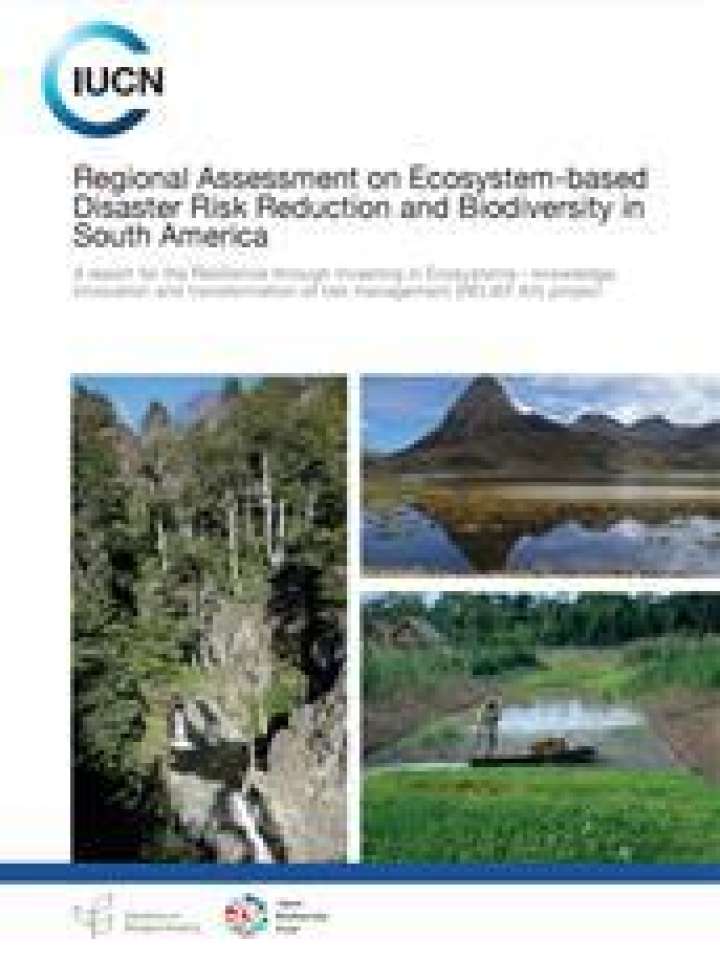Regional assessment on Ecosystem-based Disaster Risk Reduction and Biodiversity in South America
This regional assessment documents experiences on Eco-DRR and its linkages with biodiversity in South America. It highlights key entry points and opportunities to catalyse actions for Eco-DRR that embraces the importance of biodiversity and ecosystems.
The assessment for South America provides a brief analysis of natural hazards in the region, identifies the most significant disasters by type, their occurrence and impacts -both in terms of populations affected and economic damages incurred. It incorporates information and experiences on ecosystem-based disaster risk reduction and is a first attempt to demonstrate linkages with biodiversity, from six focal countries in the region- Argentina, Bolivia, Chile, Colombia, Ecuador and Peru.
Together, these countries accounted for 70% of total reported disasters in South America in the period 2000–2015, comprising 60% of floods, 84% of landslides, 74% of extreme temperatures, 55% of storms, 47% of drought, 93% of wildfire, 100% of volcanic activity, 56% of epidemics, and 96% of earthquakes in the region.
The assessment provides examples where sustainable management, conservation and restoration of ecosystems to reduce disaster risk have been or continue to be implemented in the region; it explores some of the ways that biodiversity and ecosystems influence DRR strategies in the region, thus contributing to sustainable and resilient development.
The synthesis illustrates that the experiences and policy initiatives of the focus countries represent diverse geographical areas, stakeholder groups, socio-economic conditions and strategies with DRR components, and how biodiversity and ecosystems influence them. The variety of conditions captures the richness of how different stakeholders are addressing disaster risk issues in the region, as well as the gaps and opportunities where ecosystem-based approaches can be infused in DRR options.
Explore further
